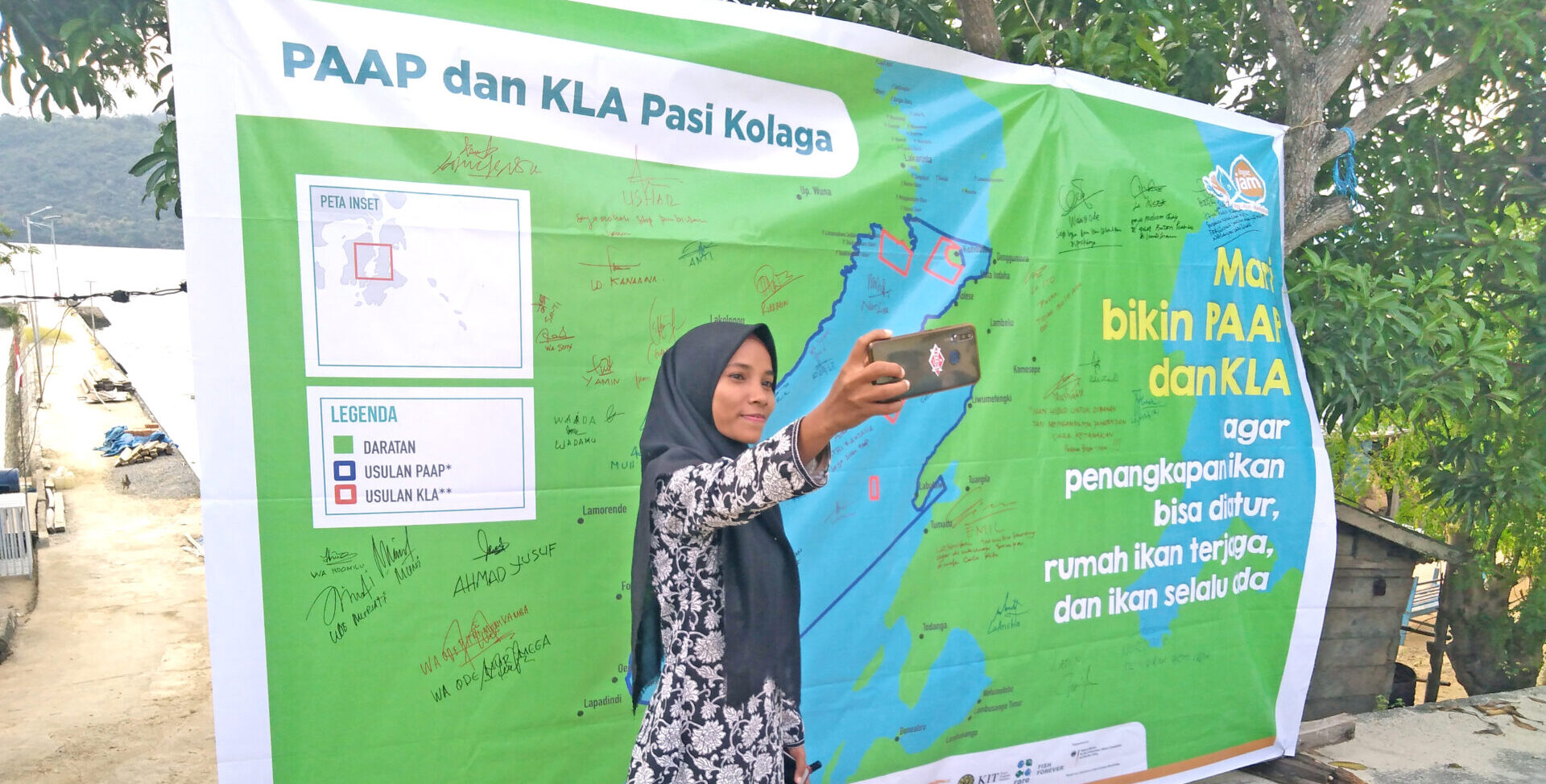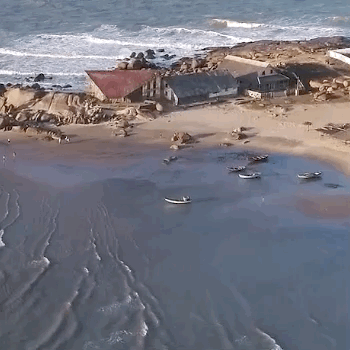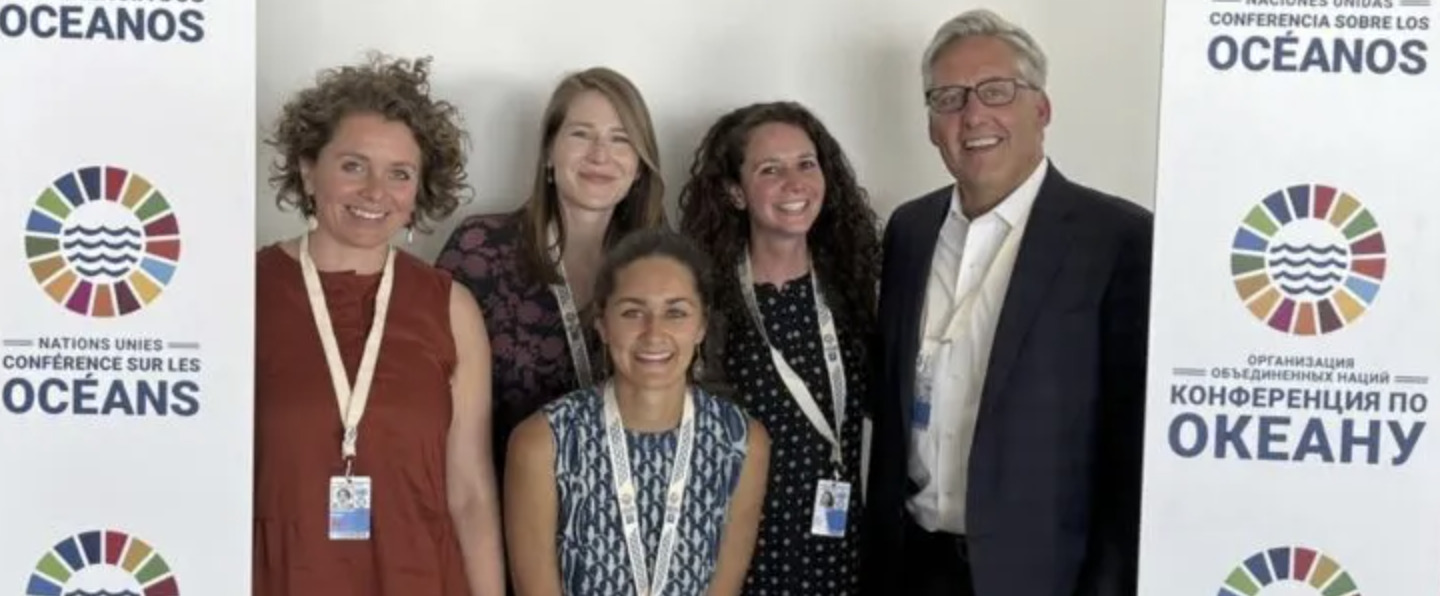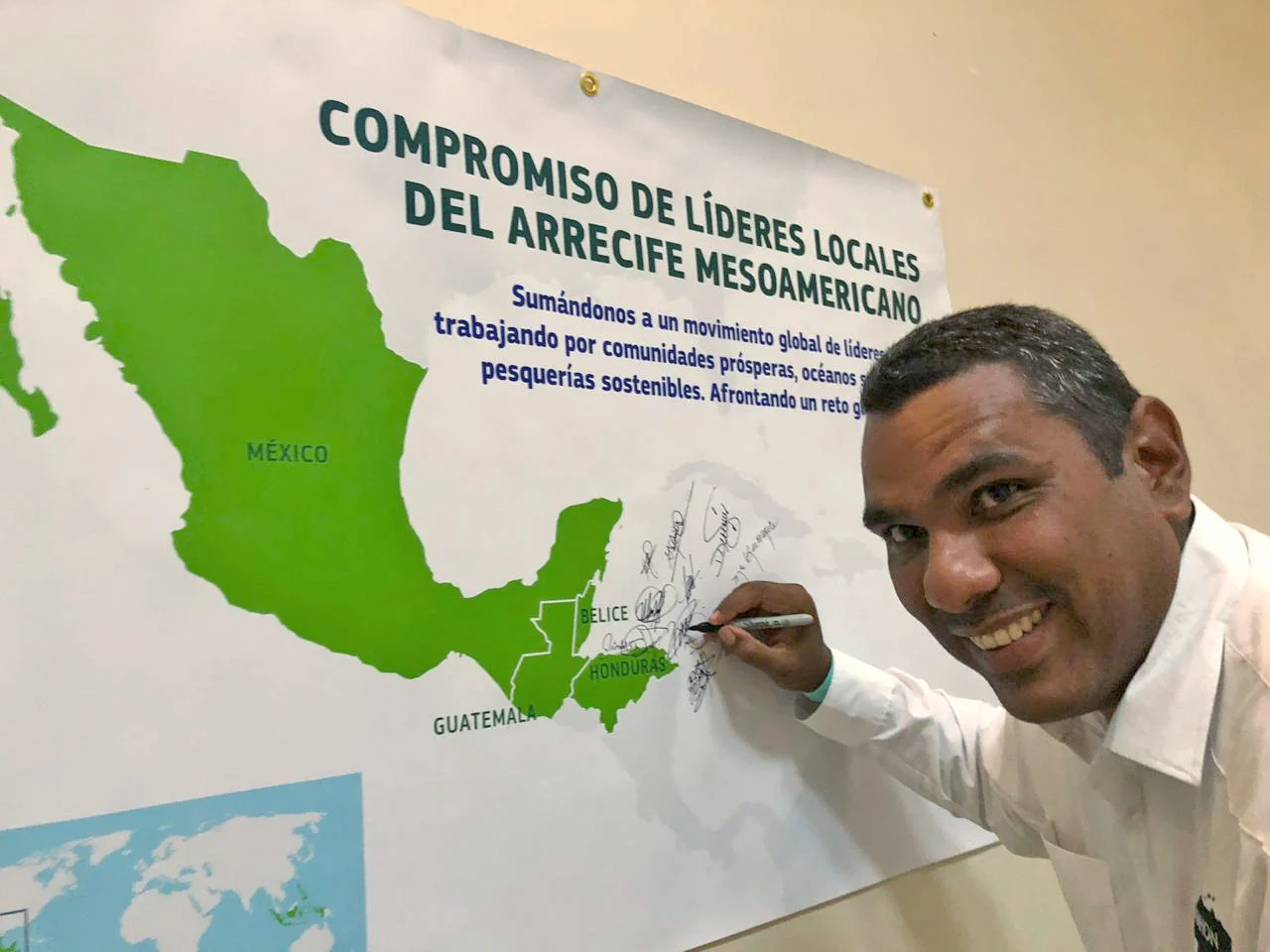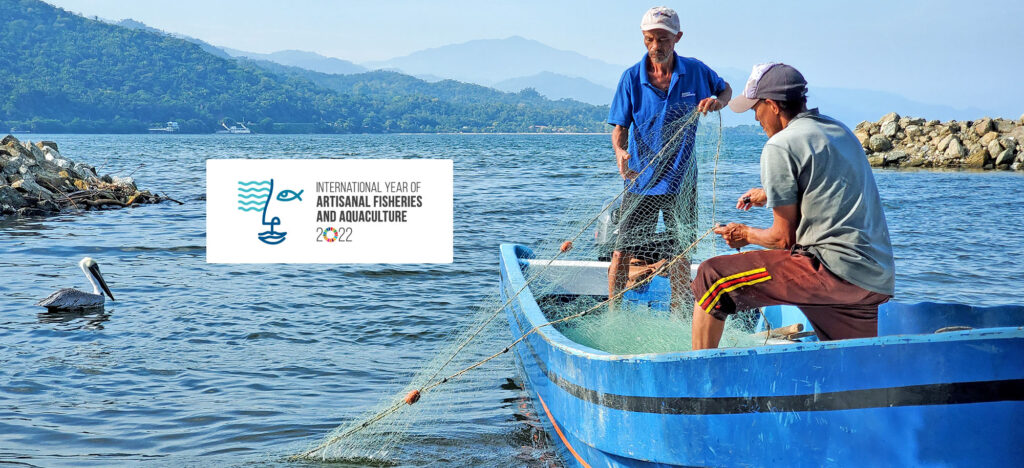|
|
Making History in IndonesiaIn an incredible milestone for Indonesia’s small-scale fishers, Southeast Sulawesi’s Provincial Governor approved a first-of-its-kind community-based fisheries management model. Approval of ‘managed access fishing areas’ in Indonesia allows fishers to co-manage their coastal waters and safeguard their livelihoods. |
|
|
Protecting the Right 30% of Our OceanIn a recent op-ed, Rare’s Rocky Sanchez and University of California-Santa Barbara’s Steve Gaines answer the question, “Does it matter which parts of the ocean we protect?” and explain the importance of conserving our world’s territorial seas through the global 30×30 campaign. (and check out the visual Case for Protecting and Managing Our Territorial Seas to learn more about why we need to protect and manage this vital resource). |
|
|
Rare Quotes with Claudia Quintanilla, Senior Director of Fish Forever’s Global HubWhat does it mean to manage a fishery sustainably and make decisions based on that knowledge? In our newest Rare Quotes video, Claudia Quintanilla, Senior Director of Fish Forever’s Global Hub for Learning and Collaboration, shares how ‘The Hub’ makes Fish Forever accessible to our program partners. |
|
|
Four Takeaways from the UN Ocean ConferenceRare and partners used the recent UN Ocean Conference (UNOC) in Lisbon to make the case for more attention and resources for the territorial seas. So, what did UNOC accomplish? Rare’s Lisa Schindler-Murray shares four takeaways from the long-awaited conference. |
|
|
IYAFA Feature: Mayor Spurgeon Miller, Caribbean CaretakerIn June, Mayor Spurgeon Miller of Guanaja, Honduras, joined Rare’s delegation to the UNOC. Mayor Miller delivered remarks during the conference plenary and spoke at Rare’s widely attended side event on the 30×30 campaign. Learn more about this member of the Coastal 500 global network of local leaders who spearheaded the “Green Guanaja” campaign in his hometown to transform it into a thriving coastal landscape for the ocean, animals, and people. |
|
|
Program Highlights
|
Fish Forever Round-up
The Fish Forever Data Portal
*Real-time program data. For more details, see https://portal.rare.org.
Global
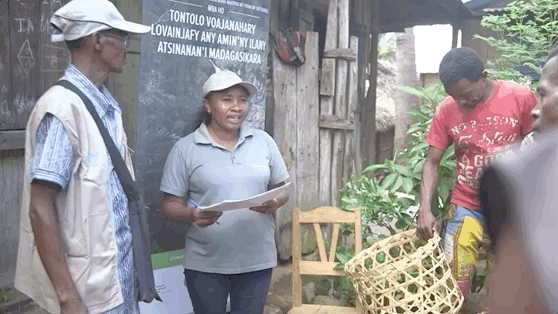
Participating in the first Ocean and Climate Change Dialogue: Rare represented the Nairobi Work Programme’s (NWP) Expert Group on Oceans at the first annual Ocean and Climate Change Dialogue to discuss ocean issues like climate resilience, fisheries, blue carbon, and ocean climate finance. Peter Thomson, UN Secretary General’s Special Envoy for the Ocean, provided opening remarks, calling upon countries to leverage blue carbon measures to increase climate ambition. Patricia Espinosa, the UNFCCC Executive Secretary, suggested governments explore ways to “blue” their NDCs and climate action plans. Rare advocated for establishing the annual dialogue and worked with partners to develop a video on blue carbon and coastal nature-based solutions that premiered during the dialogue.
Science & Technology
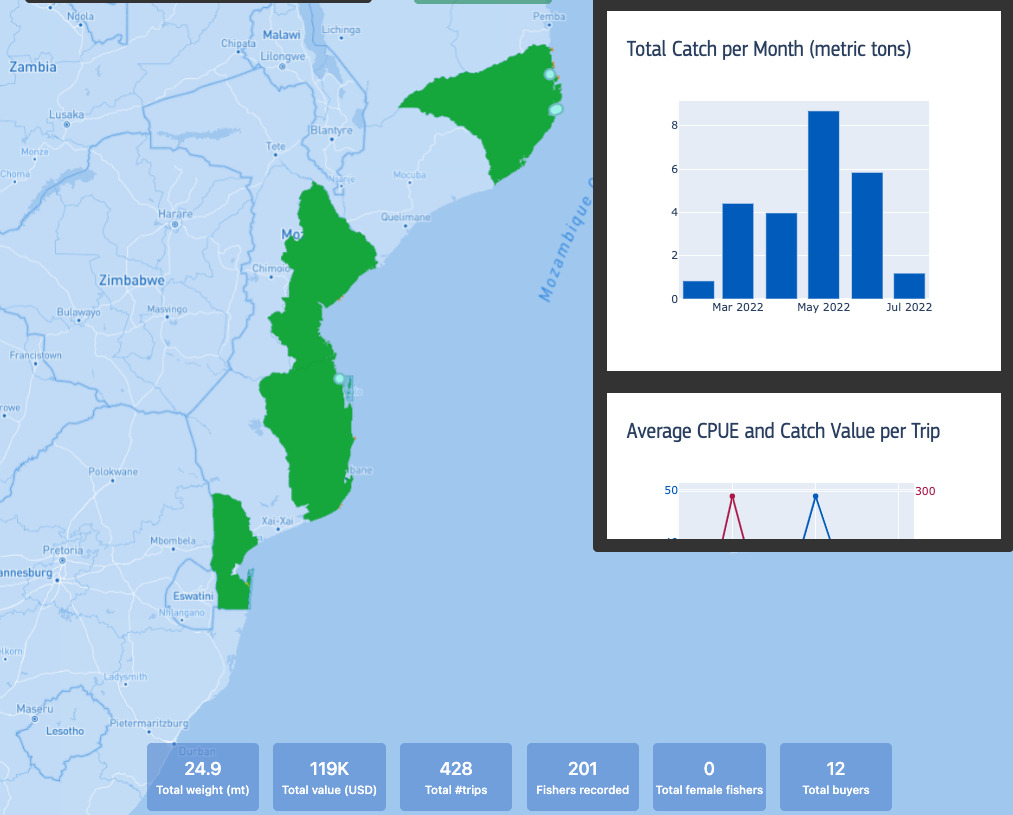
New tools and trainings for Mozambique’s fishers: Rare’s Mozambique team has successfully piloted the first in-country training of the Network of Marine Reserves (NMR) planning tool. The team received encouraging feedback from fishers regarding usability, comprehension of scientific information, and functionality. The Fisheries Management Asset tool (known as FishMAT) is also ready for management bodies’ use. Our teams are actively adapting training materials to fit our audiences’ needs, and we will begin training as early as the first week of July. Relatedly, Rare has overhauled the Fish Forever online database to support management bodies’ use and reconstructed and optimized it for a user-friendly display; it will be ready for use soon.
Indonesia
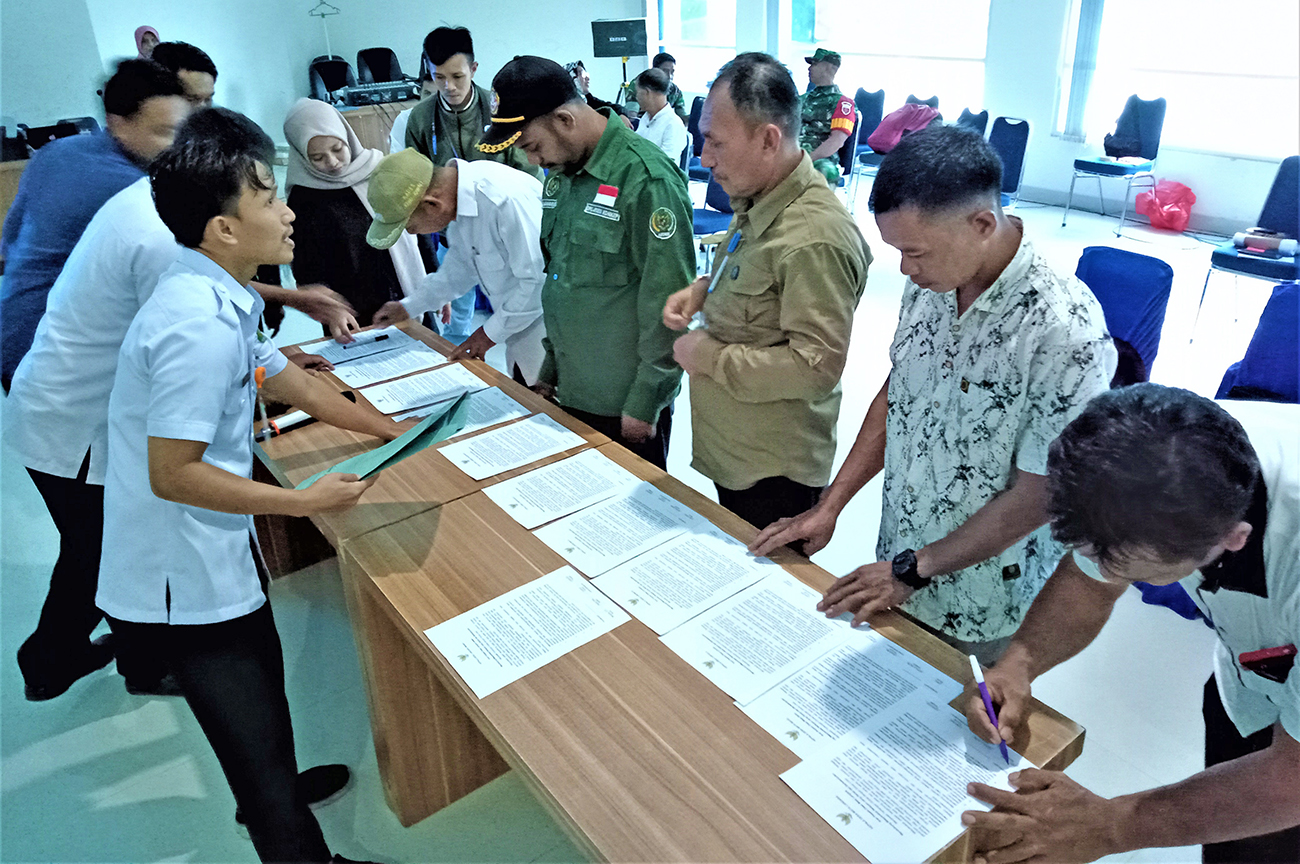
Coastal district heads and village leaders pledge commitments to fisheries: In Indonesia, Rare built a partnership of coastal district heads across three provinces to unite local leaders and call for action: Southeast Sulawesi, North Sulawesi, and West Papua. So far, 39 district heads have joined the Coastal 500 and pledged to prioritize community-based fisheries and investments in resources and frameworks that support the managed access with reserves (MA+R) model. While district heads formally commit, 34 village leaders (elected leaders) have joined them in voicing their commitments to protecting and managing coastal fisheries—and it’s just the beginning. We expect 150 village leaders across 16 managed access areas to join the partnership by 2022. These leaders will ultimately control how managed access areas are implemented and ensure the benefits of them remain local.
Making fish quality a priority: A key lesson for sustainable fish buyers is to focus on fish quality instead of quantity. From June 15th-17th, Rare held a Quality Improvement Training of Fresh and Processed Fish in Mataoleo, Bombana District, SE Sulawesi. The training brought together 50 participants consisting of first-level buyers, suppliers, and fish processors (the majority of whom are women). Experts from the Indonesian Pole & Line and Handline Fisheries Association and SE Sulawesi Marine and Fisheries Office taught participants how to recognize fish freshness, identify decay, and calculate the cost of goods. Participants voiced their excitement about the new market opportunities that will open for them thanks to this insight.
Brazil
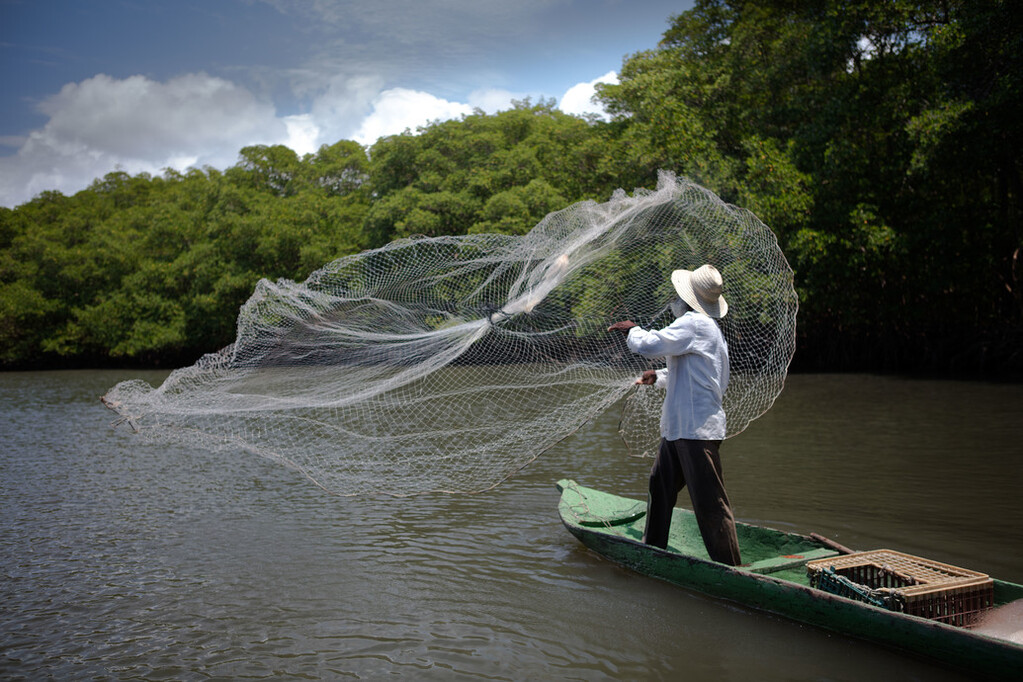
Celebrating the International Year of Artisanal Fishing and Aquaculture (IYAFA 2022): In honor of IYAFA 2022, Rare Brazil launched a series of webinars to celebrate fishers’ impact on their communities. Follow along on Rare Brazil’s YouTube Channel as episodes continue to roll out throughout July.
Supporting youth leaders in the Cuíras Resex Soure: In May, the Cuíras Resex Soure group launched the second phase of the youth initiative to support future leaders’ development in the Amazonian mangroves. After weeks of mobilization, the 6 Resex and 1 Environmental Protection Area (APA) selected two youths and advisors to participate in the training cycle. To spread awareness and engage with community members in their territory, the Cuíras Resex Soure group painted murals and led a theater workshop with the support of local artists.
Ecologically monitoring fish in coral reefs: In partnership with the Federal University of Pará (UFPA) and Bragança City Hall, a pilot of the Currais Bragantinos Project set out to identify fish species in local coral reefs. The team collected data on the population structure, dynamics, and bioecology of the main species caught in the fishing corrals. The identification and information gathered on each species will help implement marine reserves to increase future population stock.
Philippines
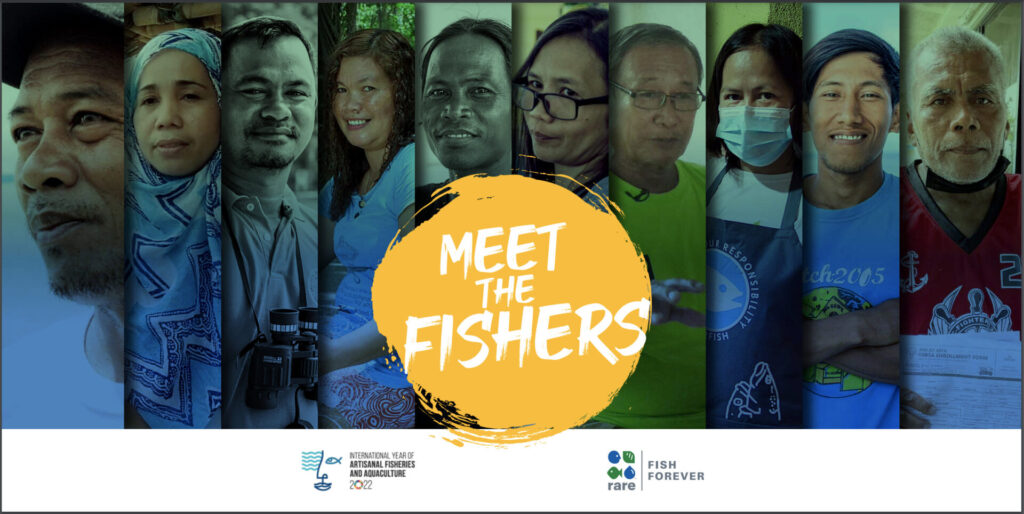
Meet the fishers: Who are the Philippines’ small-scale fishers? In honor of the International Year of Artisanal Fisheries and Aquaculture (IYAFA 2022), Rare Philippines created a digital snapshot of 10 small-scale fishers who lead the country in managing its community-based coastal fisheries. From protecting their municipal waters against illegal fishers to promoting household financial resilience and climate-smart fisheries, their stories give a voice to the 1.9 million fishers that rely on coastal ecosystems for food security and livelihoods.
Adopt an MPA campaign: Marine Protected Areas (MPAs) play a crucial role in supporting biodiversity, livelihoods, and food security. In June, Rare Philippines and the SEA Movement launched the Adopt an MPA campaign to generate support for conserving marine sanctuaries in Siargao. The campaign will help maintain and protect the island’s 17 existing MPAs and 15 proposed ones.
New report celebrates artisanal fishers: In partnership with the Bureau of Fisheries and Aquatic Resources and the Food and Agriculture Organization, Rare launched a report on the status of artisanal fisheries in the Philippines. The day before the launch, community leaders and other small-scale fishers met to celebrate National Fisherfolk’s Day and the report’s coming publication.
Government collaboration supports fisheries management: Rare Philippines signed an agreement with the Bureau of Fisheries and Aquatic Resources to collaborate and share resources in Fisheries Management Area 5. This partnership will significantly benefit coastal communities in Occidental Mindoro, Libertad, Pandan, Sebaste, and Culasi.
Rebuilding with Nature: With powerful winds reaching 150 mph, the Philippines’ Typhoon Odette made landfall in December 2021. Landslides and crushing waves wreaked havoc on coastal communities, destroying homes, tourist resorts, and coral reefs. Now just months after the devastating typhoon, the city of Del Carmen has bounced back quicker than others, thanks to mangroves and the city’s disaster preparedness. Over the last few years, Del Carmen has prioritized rehabilitating mangroves, investing in coastal resilience, and adapting to climate change. See the story.
Mesoamerican Reef (MAR)
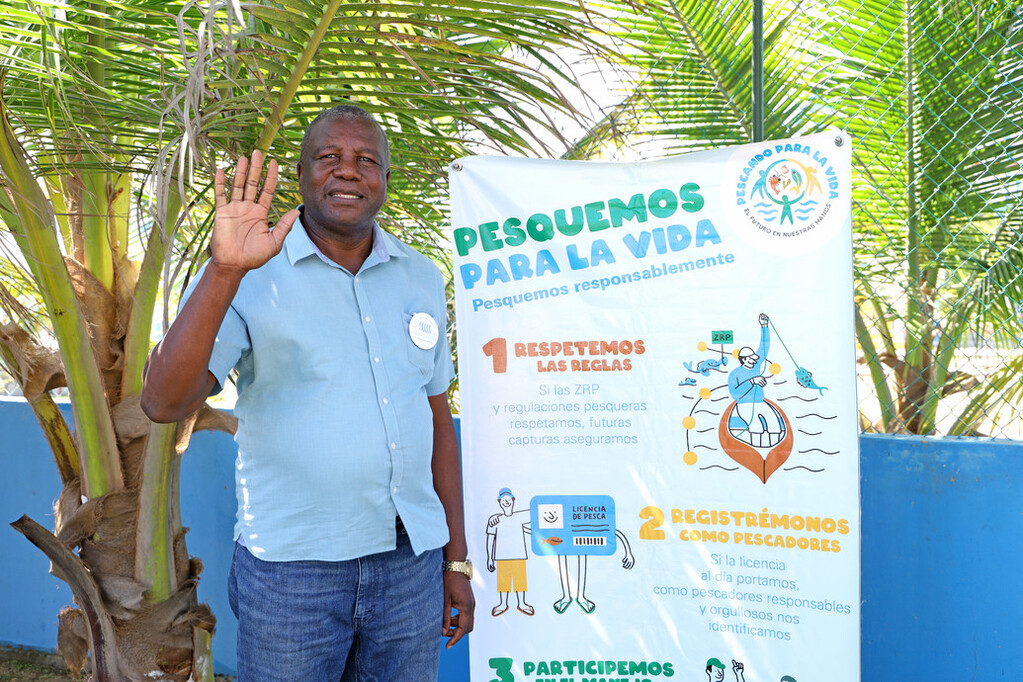
Expanding reserve networks: Rare is undertaking the groundwork needed to advance marine reserve legality and functionality in Honduras. In March 2022, Rare kicked off community negotiations to grow Santa Fe municipality’s reserve network, leading to three new reserves proposed: Bajo Seco, Plan Grande, and Bajo Elías. Together these reserves will fully protect 10.8 km2 of coastal waters and surpass our target of protecting an additional 1.5 km2 of critical habitat. Rare and Santa Fe’s fishers will officially request municipal approval for these reserves in the coming months. Mayor Noel Ruiz has already committed to approving the areas, and we expect progress in reserve legality once biological monitoring is complete.
Meanwhile, in the municipalities of Iriona and Limón, where we previously collected ecological baselines during the first half of 2022, Rare analyzed the data and created maps with proposed reserve locations to maximize benefits. As a next step, Rare will share this proposal with the area’s co-managers for input and negotiation, ultimately informing the creation of the area’s management plan. By embedding reserve declaration directly into the managed access (MA) management planning process, we hope to set a precedent that fast-tracks reserve adoption throughout Honduras’ managed access areas.
Regional Fisher Registration Workshop builds progress: In June, Rare held a Regional Fisher Registration Workshop, in partnership with the Central American Fisheries and Aquaculture Organization (OSPESCA), which put Rare one step closer to achieving our goal of strengthening regional transparency and harmonizing national fisher registration systems across Central America. The workshop brought together 22 key national and regional fisheries staff to explore each country’s fisher registration systems. Countries shared several highlights like Costa Rica’s public fisheries data portal, Honduras’ fully digital registration system with off-line capabilities, and the effective partnerships between Nicaragua’s Fisheries Department and rural municipalities.
Connecting with communities through the Fishing for Life campaign: In Honduras, the Fishing for Life campaign builds community support for managed access areas for small-scale fishers. Communities in Santa Fe and Iriona, for example, incorporate ocean-themed events into cultural celebrations, like celebratory soccer tournaments and educational ocean cinemas. By engaging with community members, Rare is shifting social norms to encourage sustainable fishing and participation in management. In the last six months, Rare’s campaign events have reached 750 people across 10 communities in Santa Fe and Iriona.
Mozambique
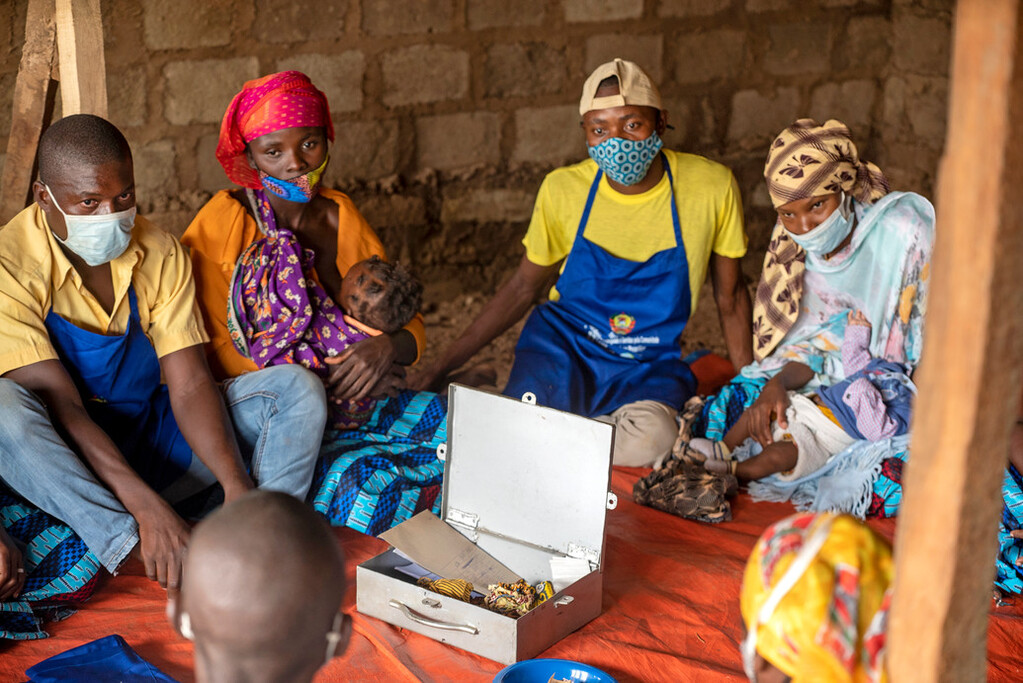
Rare workshops help strengthen financial literacy and resilience: Rare and Mozambique district government staff facilitated two financial literacy training workshops in May. Forty-six saving club members and community enterprise managers (most of whom were women from Memba and Ilha de Mocambique districts of Nampula province) learned about financial management, access to credit, gender and social inclusion, and promoting solidarity.
Community-led behavior adoption campaigns: In June, Rare staff and the provincial branch of the Fisheries Administration (ADNAP) led a behavior adoption workshop for district government staff in Ilha de Mocambique and Memba. The workshop taught participants the importance of community engagement and advocacy to support behavioral change. Following the training, individuals participated in behavior adoptions campaigns that included radio shows, billboards, and megaphone messaging that reached 300 community members across five districts of Nampula province.
Pacific Islands: Palau and Federated States of Micronesia (FSM)
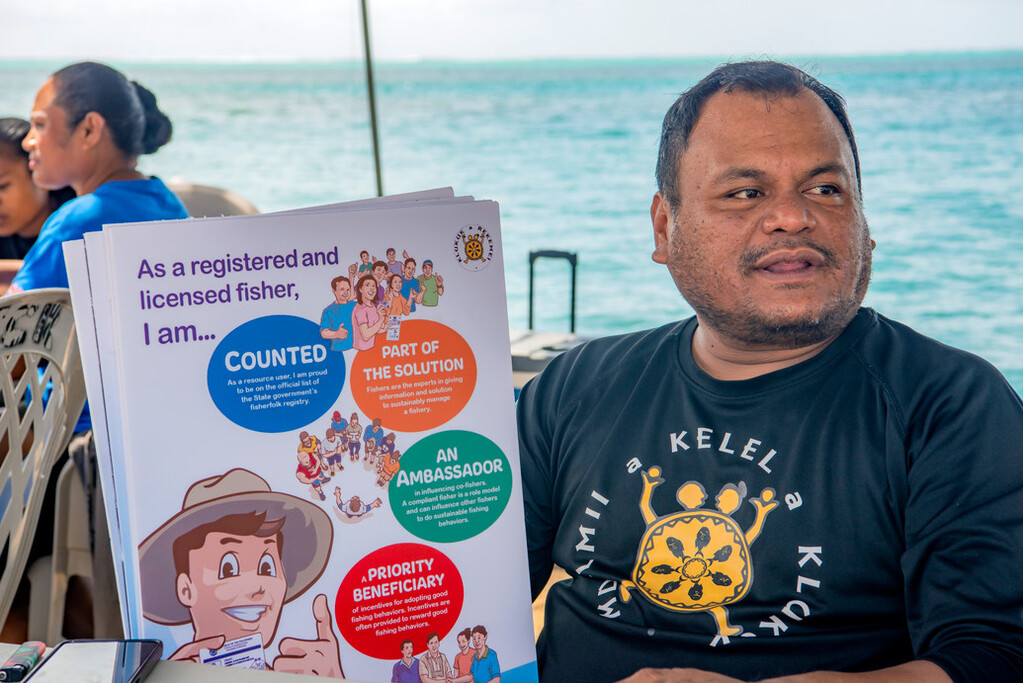
Palau
Sharing stories with the German Foreign Minister’s delegation: In advance of the German Foreign Minister’s visit to Palau, Fish Forever met with key leaders from fishing communities to collect community stories that highlight the importance of developing sustainable fishing practices for climate resilience. Together with the Ministry of State, we developed key talking points, real-life examples, and policy highlights to share with the Minister’s delegation.
Developing a national fisher registration system: Fish Forever is finalizing plans to begin production of the national fisher registration system. Developments will kick off in July and we plan to meet with various stakeholders, fishing leaders, and partners from the Bureau of Fisheries for input.
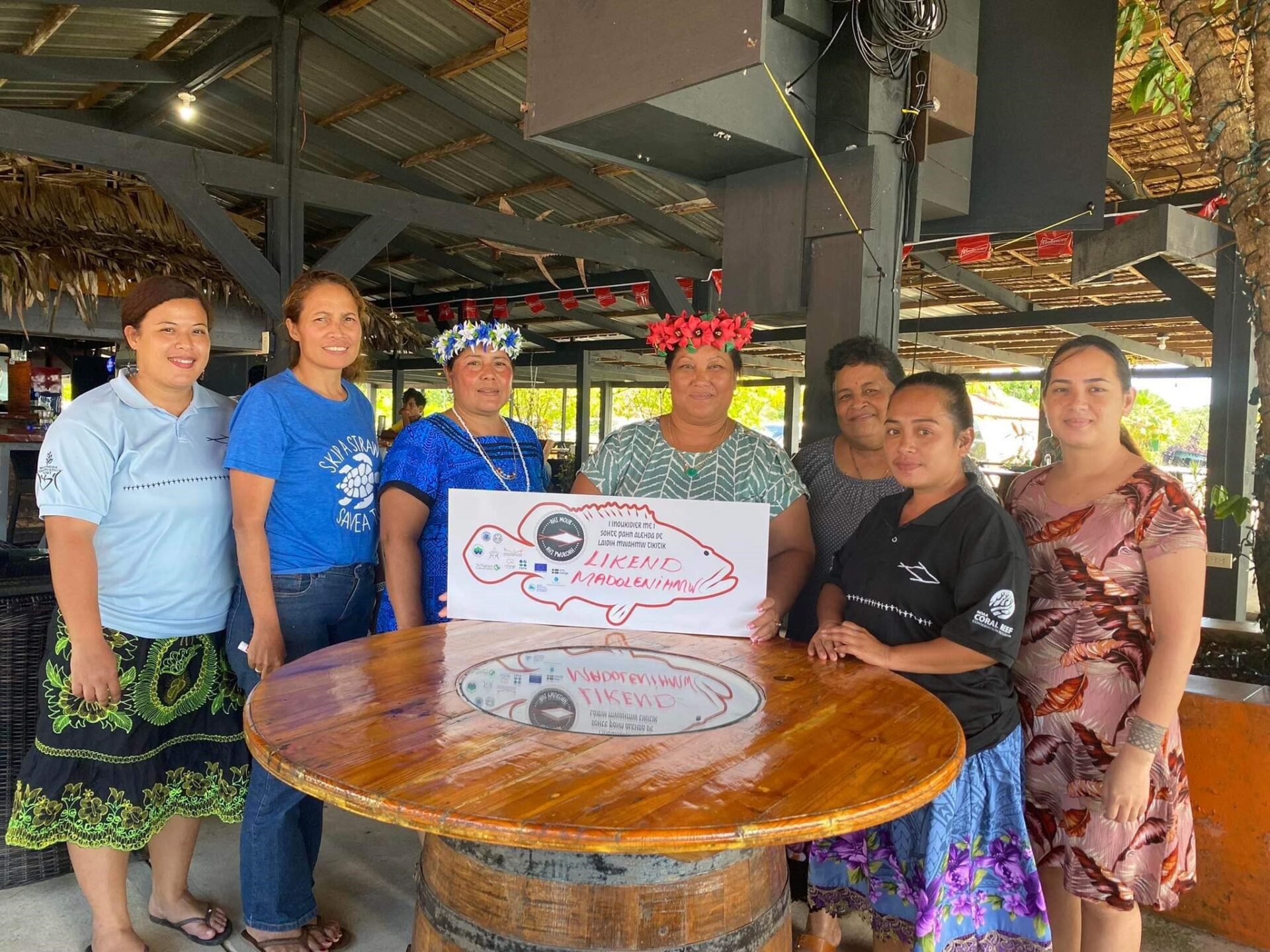
Micronesia
Likend Madolenihmw shows support for coastal fisheries: Likend Madolenihmw Merleen Martin Hebel, the traditional queen of the municipality of Madolenihmw, demonstrated her support for sustainable fishing practices by being the first Pohnpeian traditional leader to pledge not to catch juvenile fish. On June 3rd, she met with representatives from conservation groups including Rare, Conservation Society of Pohnpei, and Micronesia Conservation Trust to learn about our ongoing Fish Forever efforts aimed to improve coastal fisheries. Rare looks forward to working with Likend Madolenihmw and other traditional leaders as we continue to expand Fish Forever’s work within local communities in the Federated States of Micronesia.
FIELD-BUILDING RESEARCH
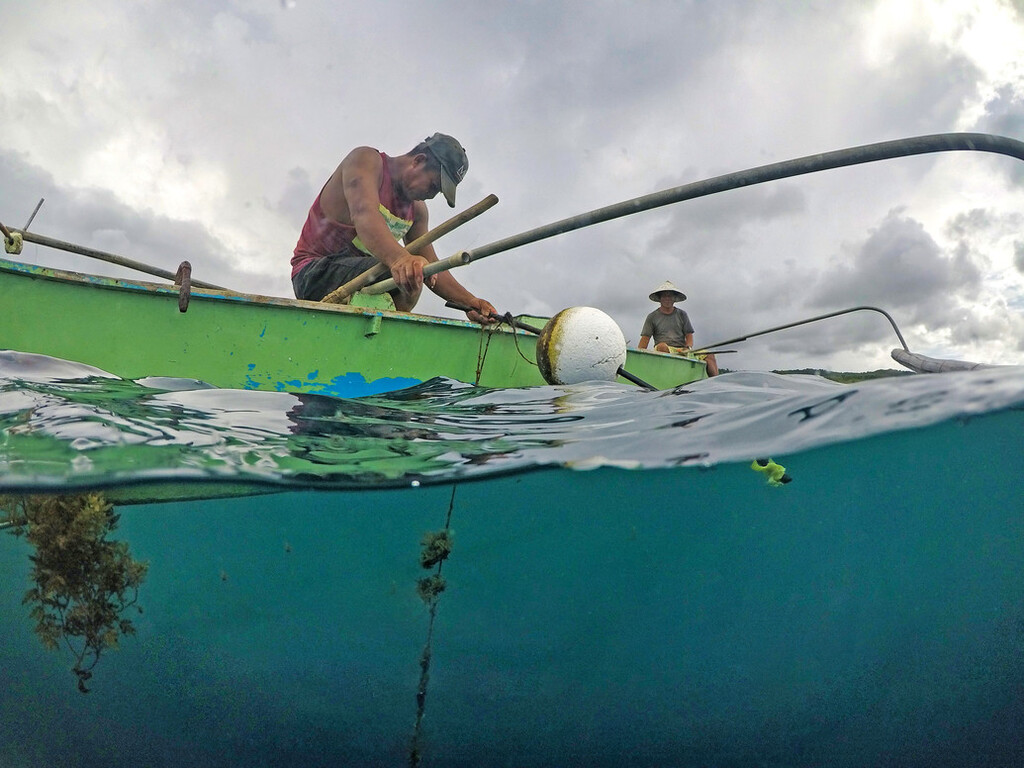
Participation, not penalties: Community involvement and equitable governance contribute to more effective multi-use protected areas (May 2022)
Fidler, R. Y., Ahmadia, G. N., Amkieltiela, Awaludinnoer, Cox, C., et al. (2022). Participation, not penalties: Community involvement and equitable governance contribute to more effective multi-use protected areas. Science Advances, 8(18). https://doi.org/10.1126/sciadv.abl8929
More than ever, protected areas (PAs) need to slow the concerning pace of ecosystem degradation. In addition to preserving biodiversity and ecosystem services, this call to expand PAs must also sustain human well-being and livelihoods, especially those of Indigenous Peoples and local communities (IPLCs) who manage more than a third of the world’s natural areas. Fidler et al. utilize a long-term dataset collected via ecological and household surveys from four marine PAs in Eastern Indonesia’s Bird’s Head Seascape. This dataset helped the researchers helped quantitively assess and understand the relationship between governance principles, social context, IPLC resource management rights, and ecological benefits, such as increased fish biomass. Results support the claim that multi-use Marine Protected Areas (MPAs) can also increase fish biomass in addition to no-take areas. However, results equally indicate that effective governance is critical for their success. In particular, the study revealed that establishing and enforcing equitable rules tailored to local conditions and having penalties that match the offense were the two governance indicators most strongly related to positive ecological outcomes (fish biomass). In sum, Fidler et al. indicate local involvement by IPLCs in multi-use PA management is a viable solution to balancing equity and inclusion of IPLCs with biological conservation.
Mainstreaming Equity and Justice in the Ocean (April 2022)
Bennett, N. J. (2022). Mainstreaming Equity and Justice in the Ocean. Front. Mar. Sci, 9, 873572.
Equity and justice have become agreed-upon priorities for ocean policy, fisheries management, and coastal protection in recent years and are crucial for Fish Forever’s community-based work. In this article, the author outlines six practical recommendations organizations and managers can pursue to implement these values. These recommendations include: recognizing past issues in marine policy equity and justice in the places where we work; defining equity and justice in the context of our work, both through policy and implementation; mainstreaming equity and justice as focal areas in our policy, organizational priorities, project workplans, and expected outcomes; increase our capacities and skills for thinking about the human dimensions of coastal management; support social science research and apply social science evidence; and commit to internal equity, diversity, and inclusion efforts.
Spatial zoning to conserve fish species with complex life cycles in estuaries (April 2022)
de Paula Costa, M. D., Magris, R. A., Muelbert, J. H., Vieira, J. P., Castello, J. P., Copertino, M. S., & Possingham, H. P. (2022). Spatial zoning to conserve fish species with complex life cycles in estuaries. Ocean & Coastal Management, 221, 106115.
This article uses data from the Patos Lagoon in southern Brazil to design coastal conservation areas based on critical habitats and biological patterns of target species. Despite seasonal bans, gear restrictions, and protection of spawning areas, the whitemouth croaker (Micropogonias furnieri) remains one of the most overexploited fish in Brazil. Like many target species, this fish lives in different habitats depending on its life stage and estuaries for key life-history events. The authors set out to determine which parts of the estuary would be most effective for no-take zones and managed fishing areas by identifying a wide range of ecological factors and using Marxan to help determine the most critical areas for protection (much like Fish Forever does). In identifying the ideal locations for croaker-specific conservation zones, the authors conclude that protections for larvae and larval dispersal are essential for spatial management planning. That’s not the only finding relevant to Fish Forever’s MA+R approach: Through this study, the authors found that adding controlled fishing areas to the no-take zones did not substantially change the ideal area selected for no-take zones. In other words, adding Managed Access areas doesn’t affect where the reserve should go. The authors also learned that integrating the two areas into a single management plan (i.e., MA+R) reduced the effective size required for a no-take reserve.
Fish Forever: A solution to coastal overfishing – delivered by empowering communities through clear rights, strong governance, local leadership, and participatory management – that protects essential fish habitat and regulates fishing activities to replenish and sustain coastal fisheries.
Goal: To deliver replicable and scalable community rights-based management across ten countries, using a global network of 500 local leaders to secure livelihoods for one million fishers, alleviate poverty, ensure food supply, and protect coastal ecosystems from chronic threats.
Fish Forever Countries: Philippines, Indonesia, Mozambique, Brazil, Honduras, Guatemala, and the Pacific Island countries of Palau and the Federated States of Micronesia.
Fish Forever is possible thanks to the support of many, including the following current donors:

